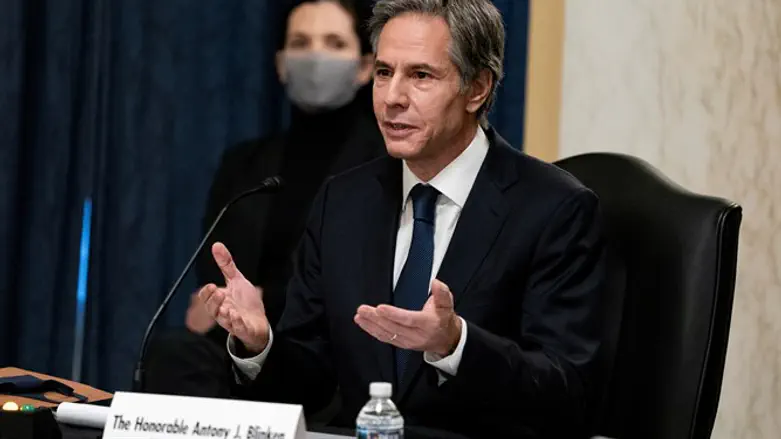
US Secretary of State Antony Blinken spoke on Monday with Emirati Foreign Minister Sheikh Abdullah bin Zayed, Indian Foreign Minister Dr. S. Jaishankar, and Israeli Foreign Minister and Alternate Prime Minister Yair Lapid.
“The Secretary and the Foreign Ministers discussed expanding economic and political cooperation in the Middle East and Asia, including through trade, combating climate change, energy cooperation, and increasing maritime security,” said State Department spokesman Ned Price.
“Secretary Blinken and the Ministers also discussed people to people ties in technology and science, and how to support global public health in relation to the COVID-19 pandemic,” added Price.
He also noted that Blinken “reiterated the Biden Administration’s support for the Abraham Accords and normalization agreements and discussed future opportunities for collaboration in the region and globally.”
Lapid earlier on Monday met with Jaishankar at the Ministry of Foreign Affairs in Jerusalem.
The ministers decided in their meeting to renew negotiations on a free trade area agreement between the countries in November, with the aspiration that the agreement will be ready for signature by the middle of 2022. Additionally, the ministers agreed on mutual recognition of vaccination certificates, as well as to expand cooperation in the areas of water and agriculture, which in recent years have become a central anchor of the relations between the two countries.
Blinken and Lapid also met last week in Washington and discussed the Iranian nuclear issue, among others.
At a joint press conference with Lapid, Blinken was asked whether the US retains a military option should Iran talks fall through and replied that Washington is "prepared to turn to other options if Iran doesn't change course."
"We are committed to not allow Iran to acquire a nuclear weapon," he explained, also saying that "Israel has the right to defend itself, and we strongly support that proposition."
"We are getting close to a point at which returning to compliance with the JCPOA will not in and of itself recapture the benefits of the JCPOA and that's because Iran has been using this time to advance its nuclear program in a variety of ways," said Blinken.
The Abraham Accords were signed between the leaders of Israel, the UAE and Bahrain last September. The following month, Israel and Sudan announced they would normalize relations, and Morocco established diplomatic ties with Israel in December.
While the accords were an initiative of former US President Donald Trump, they have been backed by the Biden administration as well.
Blinken said shortly after he took office that the Biden administration supports the Abraham Accords.
He recently hosted a virtual meeting with ministers from Israel, the United Arab Emirates, Bahrain and Morocco in which he called on more Arab nations to recognize Israel.
